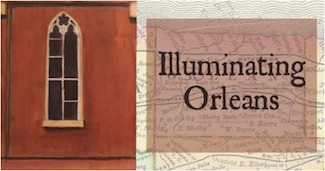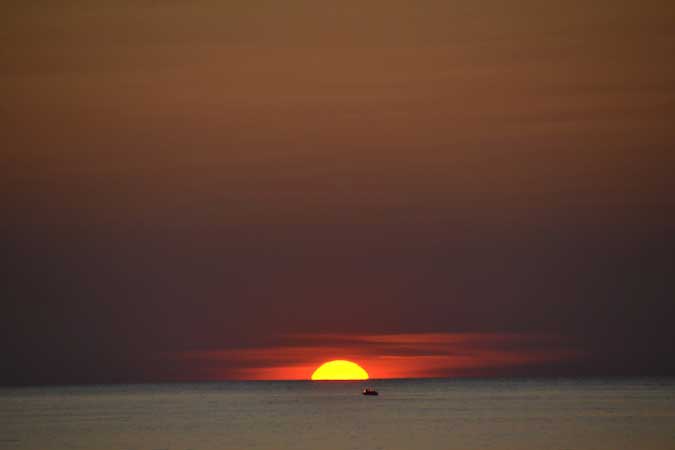Historian’s column: Grassbed fishing was short-lived phenomenon on Lake Ontario
“Illuminating Orleans” – Vol. 1, No. 18
By Catherine Cooper, Orleans County Historian

On a recent occasion, a senior family member referenced, “Mom and my aunts going out fishing on the grassbeds,” a statement which generated much discussion since the concept of “grassbeds” on Lake Ontario was new to this generation.
It appears that, in terms of lake history, this was a short-lived phenomenon and occurred between the 1900s and 1940s. Grassbeds were patches of aquatic vegetation which looked like underwater meadows with some plants that appeared to be floating on the surface. They were found near or directly offshore of some creeks, and were sometimes tricky to locate. On calm, clear days, people would row out to these areas and fish for perch, which, when pan-fried, provided a tasty supper.
Lysbeth Hoffman, the late Town of Carlton historian, referenced this topic in the Orleans County Historical Association Chronicle, 1987. She mentioned that in 1985, the Biology/Sea Grant Department of SUNY Brockport researched the demise of the grassbeds and concluded that the decline of these aquatic meadows was caused by powerful lake storms, or changes in phosphate levels, or the construction of sewage treatment facilities.
The results of changes in the lake’s ecology are often evident onshore. People recall the thousands of dead whitefish or “shiners” washed up on the beach during the 1980s. Even the weather can cause shoreline woes: layers of green algae commonly form following the combination of a warm winter, an early spring and then a scorching drought. Of course, the water levels, whether lower or higher cause dramatic shoreline changes.
We can but hope that future generations gathered at lakeside bonfires will recall the washed-up fish, the smelly crusty algae, the high waters, rocks being piled up on the shoreline as these memories, similar to the now almost forgotten grassbeds, become part of lake folklore and enrich our local history.




























































